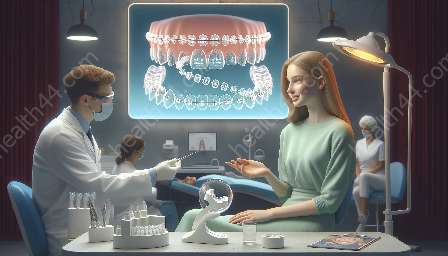Good oral hygiene is essential for maintaining overall health and well-being. Neglecting oral hygiene can lead to a wide range of potential risks and negative impacts on oral health. In this comprehensive guide, we will explore the potential risks of poor oral hygiene, the effects of neglecting dental care, and the benefits of treatments such as Invisalign in maintaining oral health.
The Impact of Poor Oral Hygiene on Overall Health
Poor oral hygiene can have far-reaching effects beyond just the mouth and teeth. It can contribute to various health issues, including:
- 1. Gum disease: Neglecting oral hygiene can lead to the development of gum disease, characterized by inflammation, bleeding gums, and bone loss.
- 2. Tooth decay: Without proper oral care, plaque and bacteria can accumulate on the teeth, leading to decay, cavities, and potential tooth loss.
- 3. Bad breath: Poor oral hygiene can result in persistent bad breath, also known as halitosis, which can affect self-esteem and social interactions.
- 4. Cardiovascular problems: Research has shown that oral bacteria and inflammation from gum disease may be linked to heart disease, clogged arteries, and stroke.
- 5. Diabetes: Poor oral health can impact blood sugar control in diabetes patients, making it more challenging to manage the condition.
The Benefits of Invisalign in Improving Oral Health
Invisalign is a popular orthodontic treatment that offers several benefits in improving oral health:
- 1. Straighter teeth: Invisalign aligners can help improve the alignment of teeth, reducing the risk of tooth decay, gum disease, and jaw joint problems.
- 2. Oral hygiene: The removable nature of Invisalign aligners allows for easier and more effective oral hygiene compared to traditional braces.
- 3. Improved confidence: Invisalign can help correct misaligned teeth, giving patients a more confident smile and boosting self-esteem.
- 4. Reduced risk of dental issues: By aligning the teeth properly, Invisalign can decrease the risk of oral health problems that can arise from misaligned or overcrowded teeth.
Preventive Steps for Maintaining Good Oral Hygiene
Preventive measures are crucial in maintaining good oral hygiene and preventing the potential risks associated with poor oral health. These steps include:
- 1. Brushing: Regularly brushing the teeth using fluoride toothpaste helps remove plaque and prevent tooth decay and gum disease.
- 2. Flossing: Daily flossing removes food particles and plaque between the teeth and along the gumline, reducing the risk of cavities and gum disease.
- 3. Regular dental check-ups: Visiting the dentist for routine check-ups and professional cleanings can help detect and address oral health issues early on.
- 4. Healthy diet: Consuming a balanced diet rich in vitamins and minerals helps maintain strong teeth and gums.
- 5. Avoiding tobacco products: Tobacco use can contribute to oral health problems, including gum disease and oral cancer, so it's important to avoid smoking and other tobacco products.
The Importance of Professional Oral Care
Professional oral care, including regular dental visits and professional cleanings, is essential for maintaining good oral hygiene. Dentists and dental hygienists can provide personalized guidance, treatments, and preventive measures to help patients maintain optimal oral health and prevent potential risks associated with poor oral hygiene.
Conclusion
Good oral hygiene is critical for overall health, and neglecting dental care can lead to various potential risks, from gum disease and tooth decay to more serious health issues. By understanding the impact of poor oral hygiene and taking preventive steps, individuals can maintain healthy teeth and gums. In addition, treatments such as Invisalign offer beneficial solutions in improving oral health. Remember, regular dental check-ups and professional oral care are essential in preventing the potential risks of poor oral hygiene and maintaining a healthy smile.


